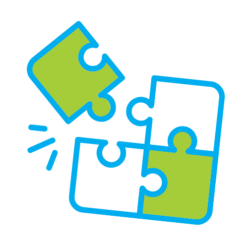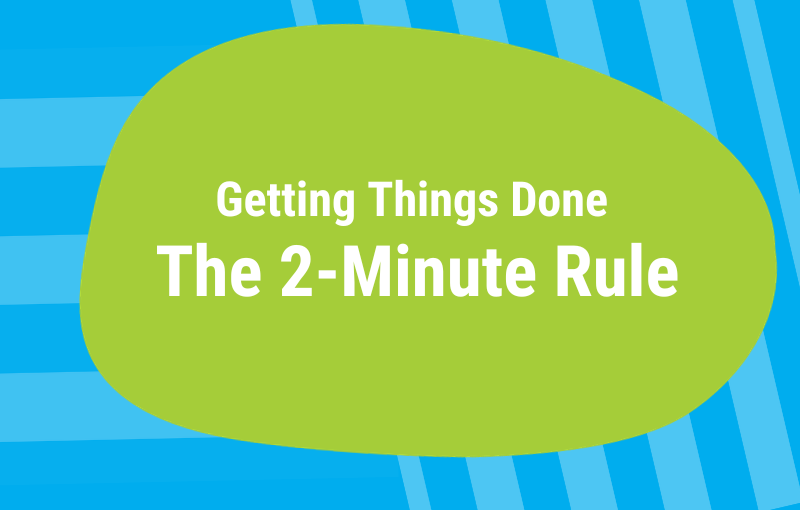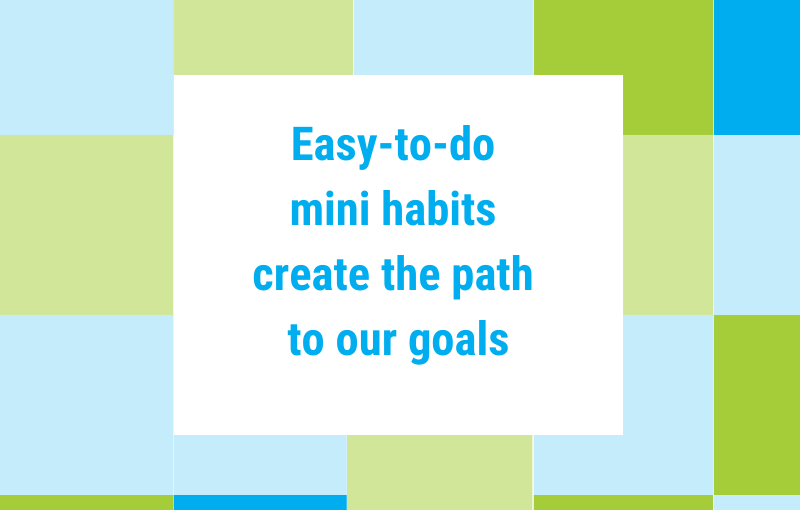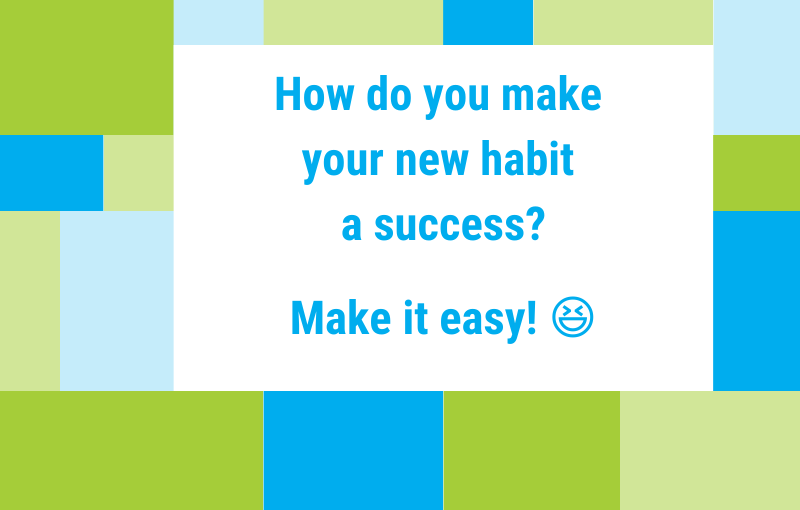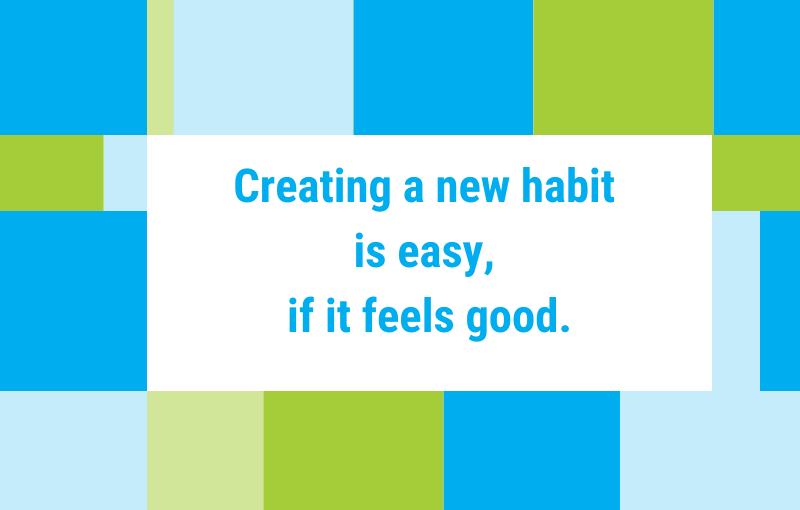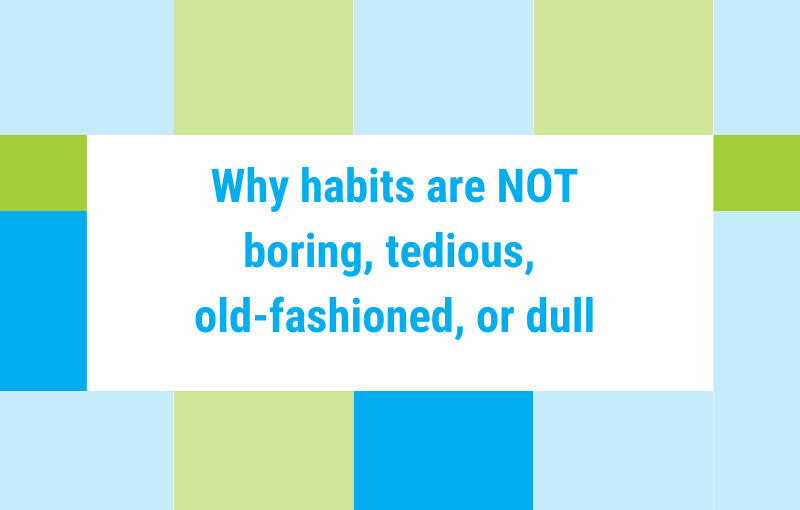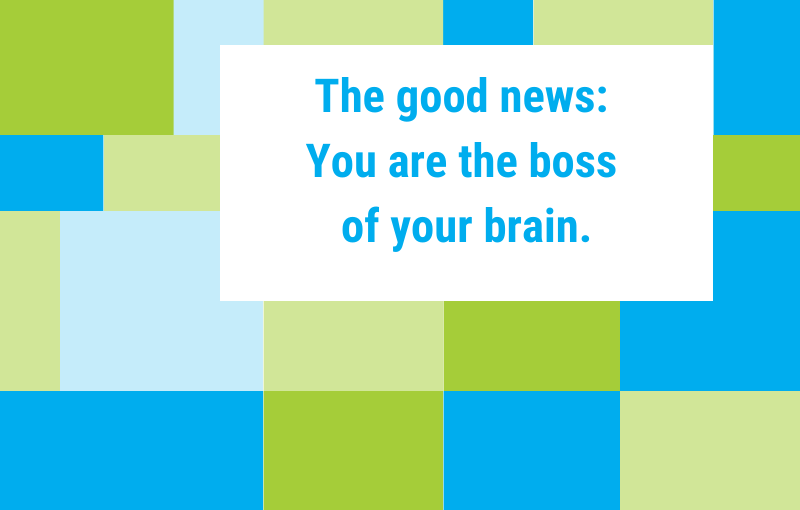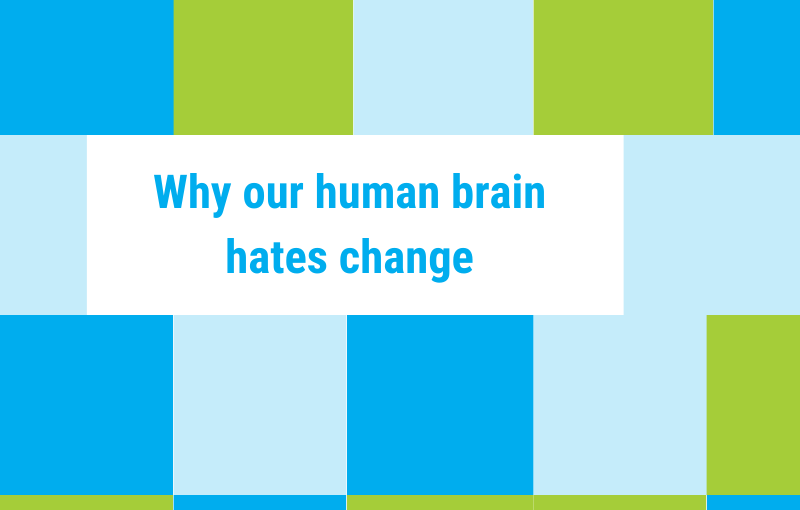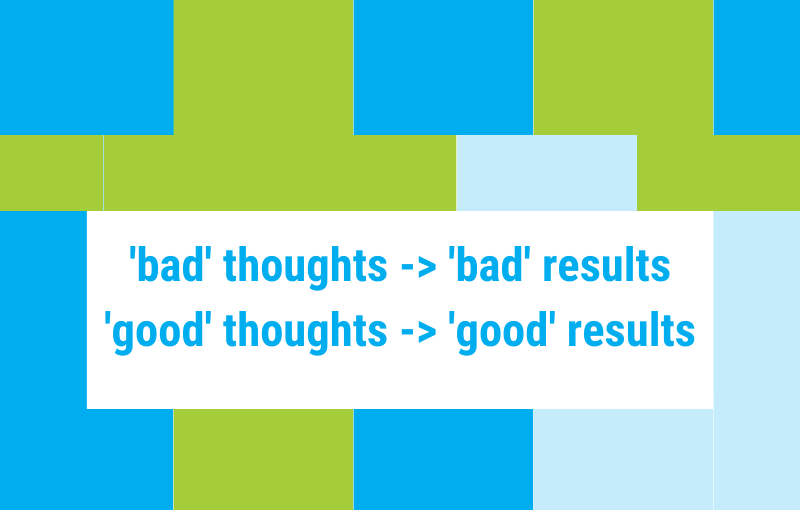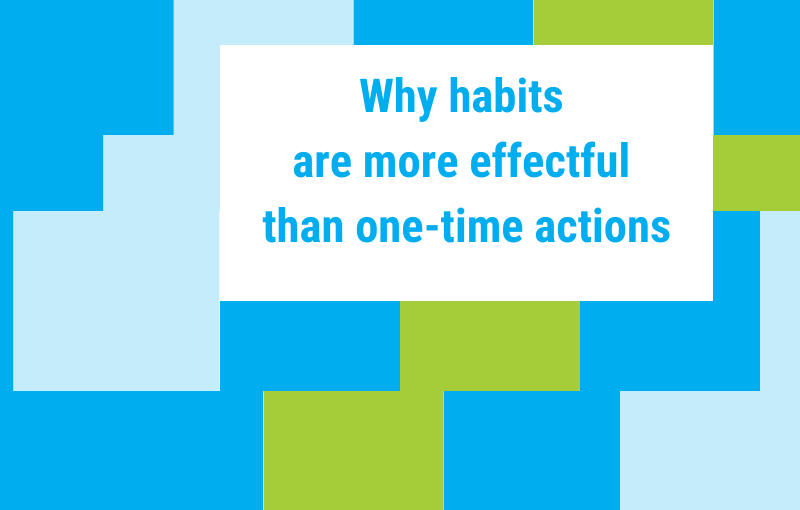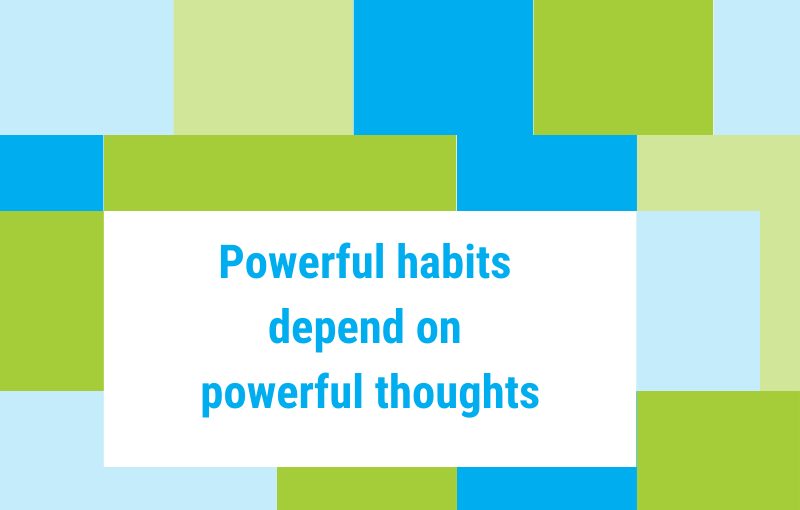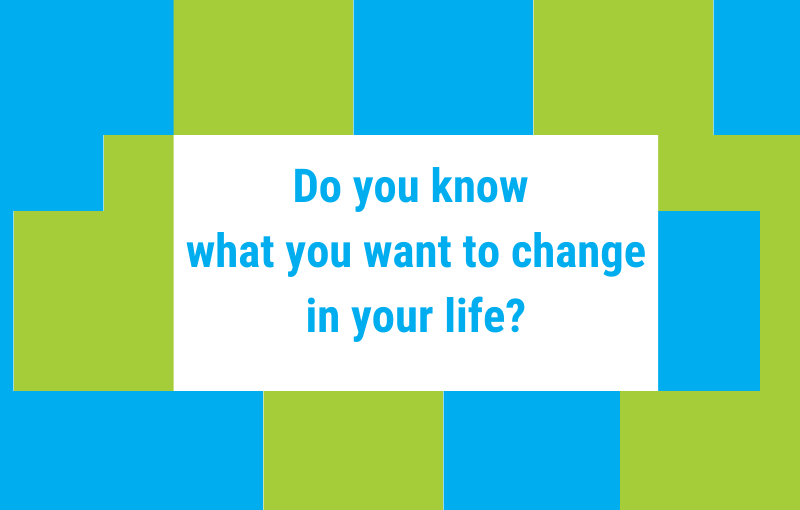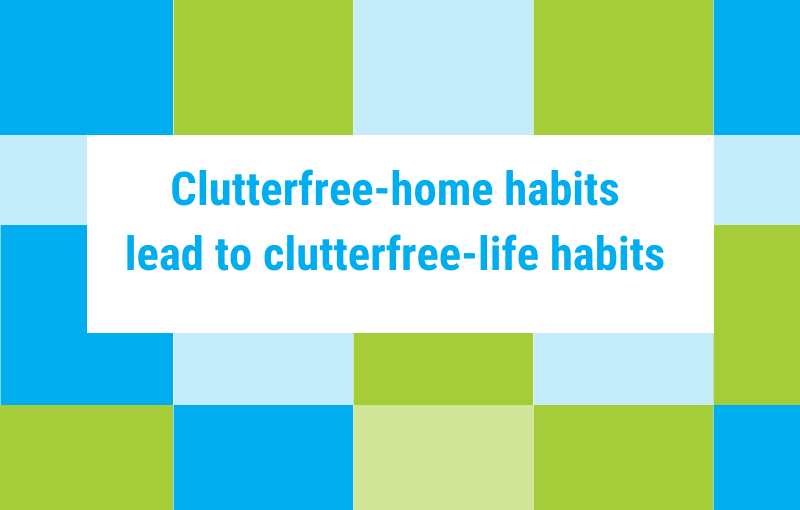The power of mini habits
Mini habits are much smaller versions of a new behaviour habit that we want to develop.
For example:
If we want to create the habit of running 60 minutes each day, a mini habit could be to walk each day for 10 minutes, or even just 5 minutes.
Mini habits have so many benefits:
Mini behaviours and mini habits help us avoid procrastination.
Procrastination is a short-term mood repair; we procrastinate to manage our emotions. That’s why getting started is often so challenging.
If we, for example, feel anxious about something we need to do and decide to put it off until tomorrow, our anxiety disappears, and we feel relief.
The positive feeling of relief is a reward for the procrastination behaviour – and the more a behaviour is rewarded, the more the survival manager likes it, and the more likely we are to repeat it. We kind of train ourselves to procrastinate.
That’s why it is so important to break down goals, projects, or new habits into small, easily doable pieces.
If we can expect and experience success from the beginning, we no longer feel anxious and hesitant to get started.
Now we get rewarded by our successes and no longer need ‘reward from failure’ (the relief after the postponing).
Mini behaviours and mini habits get us well prepared for more difficult behaviours.
If we practice small and easy-to-do behaviours, we create easy, fast, and constant successes that we can directly celebrate and feel positive about.
And success leads to success.
If we feel successful at something, even if it’s something small, our confidence increases, and we feel motivated to do it again, and to perform related behaviours.
And the more we do a behaviour, the easier it gets. Which again increases confidence and motivation.
And higher confidence and motivation levels increase our ability and willingness to do behaviours that are harder or bigger than the original one.
Mini behaviours and mini habits make us independent from our current level of motivation.
Yes, if motivation is high, we are willing to do difficult or hard behaviours.
But motivation is unreliable because it is based on how we feel.
We all experience ‘low mood days’.
Low feelings usually show up unpredictably and are often hard to get rid of. We are tired, have a headache, just feel miserable, stressed, weak.
If feelings are low, motivation is low.
Also, doing big things can feel hard and painful. We might have to push ourselves beyond our physical, emotional, or mental capabilities.
The survival manager of our brain (read more HERE), however, doesn’t want us to do painful or energy-sucking things. That’s why we can’t expect our brain to support us and why our motivation might shrink as soon as things become more demanding.
If we make a behaviour/habit tiny and easy to do, we don’t need much motivation.
We enable ourselves to do the behaviour successfully and repeatedly, no matter how our motivation might fluctuate.
Mini behaviours and habits are free of risk, danger, failure. They feel safe.
The main task of one part of or brain (the survival manager) is taking care of our safety and survival.
That’s why it not only wants us to avoid any potentially painful activities. It also wants us to avoid any potential risk or danger. To keep us save, it wants us to stay where we are and not change ourselves or our circumstances.
We can overcome our brain’s worries and fears and resistance to trying something new by avoiding big changes and instead choosing new behaviours that are so small and easy to do that they feel safe.
Mini behaviours and habits help us change our beliefs and our self-image to the better.
Our habits at least partly determine how we see ourselves, what we think and feel about the person we are (becoming).
Habits – behaviours we do consistently – become parts of our personality – the good ones as well as the bad ones. (E.g., ‘I watch TV each evening – I’m a lazy coach potato’, ‘I’m used to get up at 5am – I am a productive early morning bird’).
Practicing new habits is like developing new personality traits.
Mini habits create success experiences fast and easily which allows us to faster and easier see ourselves as a person who is successfully changing to the better: someone who is getting good at doing what she/he wants to do, who is becoming an expert in creating new habits, who is able and willing to do desired behaviours consistently.
Doing what we want to do makes us feel good and confident about ourselves and our capabilities. And possibilities.
Which makes working on more complex behaviours and habits easier and more probable.
